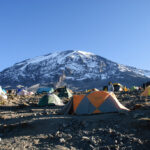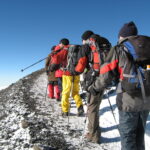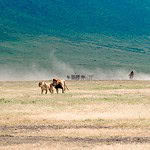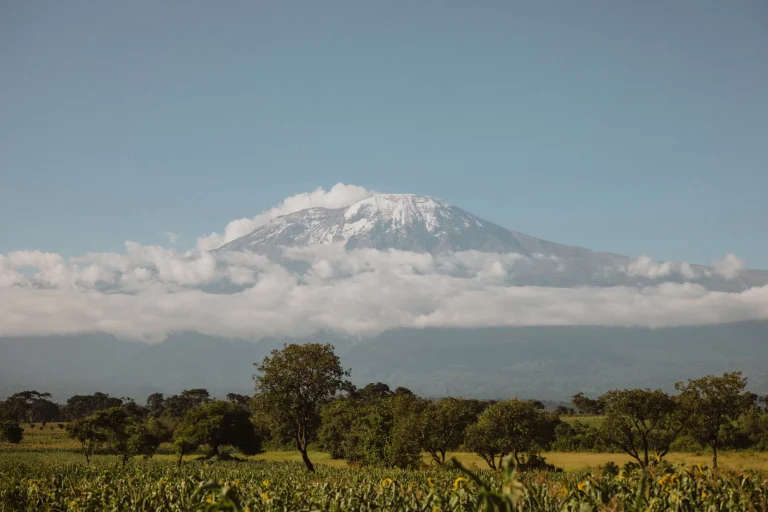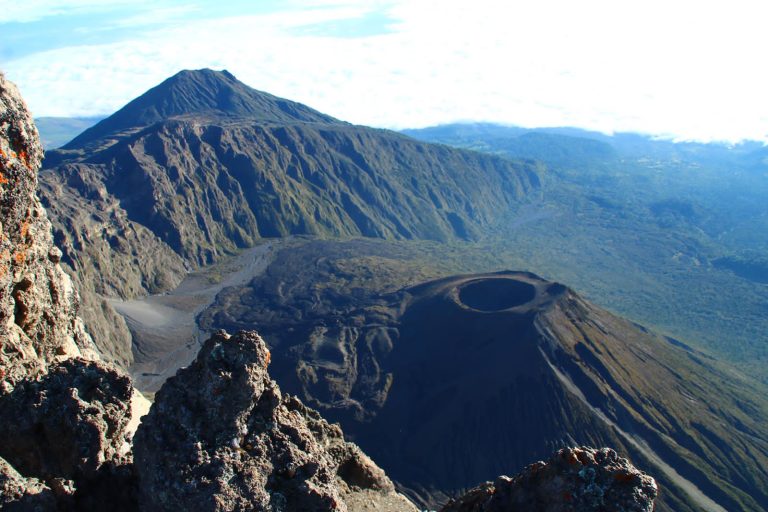Table of Contents
How to Stay Warm and Safe in Extreme Cold Weather: Practical Tips for Snow Adventures
There is nothing like a snow adventure, especially if you love skiing or trekking through winter landscapes. However, the cold can be unbearable if you’re not well-equipped. That’s why it’s important to follow Cold Weather Survival Tips to ensure you stay warm and safe in extreme conditions. Proper strategies, gear, layering, and behavior are essential to keep your body comfortable throughout your adventure. By following these Cold Weather Survival Tips, you can make the most of your snow adventure without worrying about the elements. Here are some practical Cold Weather Survival Tips for staying warm and safe in extreme cold weather.
1. Dress in Layers
The best way to stay warm in cold weather is by dressing in layers. This system allows you to regulate your body temperature by adding or removing clothes according to how you feel. The layering system includes three main layers:
- Base Layer: The base layer should sit closest to your skin. Materials like merino wool or synthetic fabrics that wick moisture away are ideal. Avoid cotton, as it holds moisture and leaves you cold and damp. The base layer helps wick sweat off the body, keeping you dry and warm.
- Insulating Layer: This layer traps warmth. Fleece, down, or synthetic insulation jackets are great options. This layer provides the necessary warmth without being bulky.
- Outer Layer: Your outer layer should be both windproof and waterproof. A high-quality, breathable jacket or coat will protect you from wind, snow, and rain while allowing sweat to evaporate. Look for materials like Gore-Tex, which is waterproof but breathable.
2. Wear the Right Footwear and Socks
Keeping your feet warm and dry is crucial in cold weather. Wear high-quality, insulated, waterproof boots that can handle snow and cold conditions. The boots should be snug but allow space for circulation.
When it comes to socks, avoid cotton. Choose wool or synthetic blends, as they insulate even when wet. Wool socks are especially effective at wicking moisture and maintaining warmth.
3. Gloves, Hats, and Scarves
A lot of body heat is lost through the extremities, so it’s essential to keep your hands, neck, and head warm. Insulated, water-resistant gloves are a must. It’s a good idea to carry a spare pair in case your gloves get wet.
A good winter hat that covers your ears is essential. Materials like fleece or wool provide excellent insulation. Additionally, a scarf or neck gaiter can protect your neck and face from biting cold winds. Consider using a balaclava in very extreme conditions.
4. Hydrate and Nourish
In cold weather, it’s easy to forget about hydration and nourishment, but both are necessary to maintain energy and warmth. Dehydration can increase the risk of frostbite and hypothermia, even in cold weather. One of the most important Cold Weather Survival Tips is to stay hydrated and nourished, ensuring your body can function optimally in extreme conditions.
Drink plenty of water throughout the day, and consume warm beverages such as tea or hot soup to stay hydrated and warm. Bring energy-boosting snacks like nuts, energy bars, or dried fruits to keep your metabolism high and generate heat. Following these Cold Weather Survival Tips will help you stay safe and comfortable during your winter adventures.
5. Avoid Frostbite and Hypothermia
While enjoying snow adventures, it’s crucial to be aware of the risks of frostbite and hypothermia, which can be life-threatening if not treated promptly.
- Frostbite: This occurs when skin and underlying tissues freeze, particularly in the fingers, toes, nose, and ears. Early signs include redness, tingling, or numbness. If you experience these symptoms, get inside and gradually warm the affected area. Do not rub, as it can cause further damage.
- Hypothermia: Hypothermia happens when your body temperature drops below 95°F (35°C). It can cause confusion, sleepiness, slurred speech, and loss of coordination. To prevent hypothermia, wear the right layers and check your body temperature regularly. If you show any symptoms, seek shelter and medical attention immediately.
6. Keep Moving
Physical activity generates heat and keeps your circulation going, so stay active to stay warm. Take regular breaks to stretch and avoid standing still for too long. However, don’t overexert yourself, as sweating too much can lead to rapid cooling when you stop. Maintain a steady pace to stay comfortable.
7. Wear Heated Gear and Accessories
In extreme cold, traditional methods may not be enough. Invest in heated gear such as battery-powered gloves, socks, vests, and hand warmers to enhance warmth, particularly in cold areas like hands and feet. Heated insoles are also an excellent choice for keeping your toes toasty.
8. Know Your Limits
Understanding your body’s limitations is crucial. If you start feeling too cold, tired, or unable to function properly, take a break, seek shelter, and warm up. Pushing your body in freezing temperatures can lead to severe health issues. Always listen to your body’s signals.
Before heading out, plan your snow adventure carefully by checking weather forecasts and local conditions. If the weather worsens, don’t hesitate to cut your adventure short and head to safety.
Conclusion
Safety is key to enjoying a snow adventure and making it a success. By following these practical Cold Weather Survival Tips—such as dressing in layers, choosing the right gear, staying hydrated, and being aware of frostbite and hypothermia—you’ll be able to enjoy the thrills of a snow adventure without risking your health. These Cold Weather Survival Tips are essential for ensuring comfort and safety throughout your trip. Whether you’re skiing in the snow or trekking through winter landscapes, it’s important to keep Cold Weather Survival Tips in mind at all times.
By paying attention to Cold Weather Survival Tips, you can avoid common issues like frostbite and hypothermia, making your snow Africa adventure even more memorable. Also, keep in mind that Cold Weather Survival Tips will help you maintain energy, prevent injuries, and allow you to enjoy every moment. Whether you’re a beginner or an experienced adventurer, incorporating these Cold Weather Survival Tips will ensure you’re well-prepared for any conditions. The key to surviving and thriving in extreme cold weather is understanding and applying these Cold Weather Survival Tips. Always trust in these proven Cold Weather Survival Tips to keep you safe and comfortable on your snow adventure.



